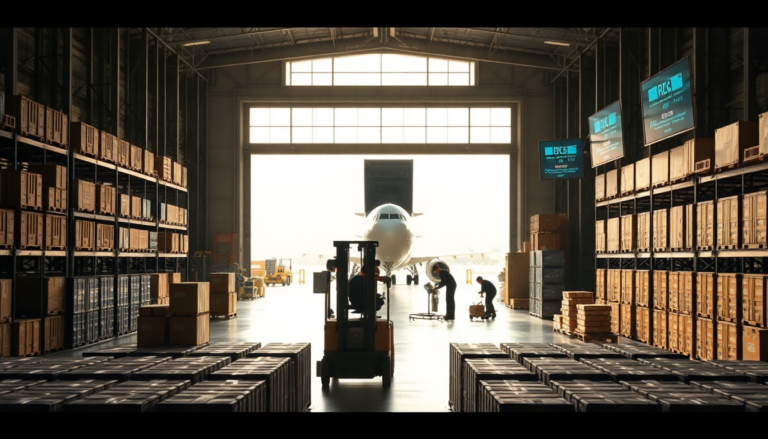Argomenti trattati
The air cargo industry is undergoing a significant transformation, driven by technological advancements and the pressing need for efficiency. As we dive into this sector, it becomes clear that having a digital backbone is no longer a luxury; it’s a necessity. Luis Leon, a Senior Relationship Officer at CHAMP Cargosystems S.A., shares his insights on his journey, responsibilities, and the challenges ahead in this dynamic field.
How Technology is Shaping Air Cargo
In today’s fast-paced world, technology is at the heart of the air cargo industry. Luis manages the e-cargo portfolio, which includes a range of products aimed at streamlining customs, security, and e-commerce operations. His role involves nurturing strong relationships that lead to lasting partnerships—key for navigating the complexities of air cargo.
A typical day for Luis is anything but mundane. The air cargo sector presents daily challenges that can vary greatly. Some days flow smoothly, while others demand navigating intricate issues with customs authorities or clients seeking clarity on product connectivity to specific countries. As a liaison among internal teams, Luis ensures that communication flows seamlessly, keeping marketing and commercial teams informed and ready to tackle their goals.
Embarking on the Air Cargo Journey
Making the leap from a 15-year career in passenger operations to the air cargo industry was a deliberate choice for Luis, fueled by his fascination with global supply chains. In his five years in cargo, he’s uncovered a world brimming with opportunities to explore how goods move across the globe. What he enjoys most is the relational aspect of his work, recognizing that behind every shipment are people who need support and connection.
Building relationships is the lifeblood of air cargo operations. Trust and communication are paramount, and Luis takes pride in being the go-to person for marketing and commercial teams. This role enables him to bridge gaps, helping others navigate the complexities of air cargo. After all, while pallets and containers represent the industry physically, it’s the people involved who truly make it function.
Facing Challenges and Looking Ahead
Modernization in the air cargo industry is crucial. Luis underscores the necessity of moving away from outdated cargo messaging systems, like CIMP, towards more contemporary digital solutions. The upcoming IATA initiative, ONE Record, set to launch in January 2026, promises to revolutionize information exchange, eliminating reliance on paper air waybills and enhancing the security of data shared with stakeholders.
Additionally, countries are increasingly implementing pre-load security clearances, which require a proactive stance on information sharing. The old CIMP messages, lacking the capacity to convey comprehensive data, fall short in meeting the demands of today’s operational landscape. As the industry evolves, adopting modern communication methods will be essential for success. Are we ready to embrace this change?
Words of Wisdom for Aspiring Professionals
For those eyeing a career in the air cargo industry, Luis has some valuable advice. The sector encompasses various roles, including operations, commercial positions, flight operations, and IT. It’s vital for newcomers to explore different areas before zeroing in on their preferred path. A solid grasp of the industry will guide their career choices and help them pursue relevant training that aligns with their interests.
In a fun twist, when asked to compare the air cargo industry to a film or book, Luis humorously suggests a Marvel movie featuring a superhero named Cargoman, dedicated to safeguarding the integrity of the global supply chain against various threats. Can you picture it?
As the air cargo industry continues to evolve and innovate, those who grasp its complexities and recognize the human element will be well-positioned to thrive in this ever-changing field. Are you ready to join the journey?

